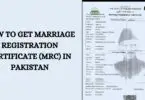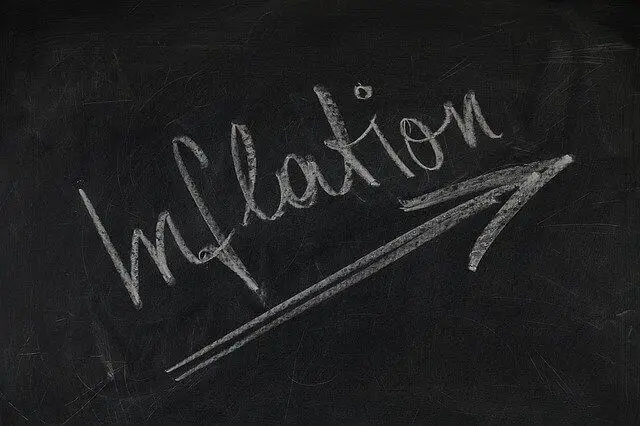Introduction
Pakistan adopted, or we can say ‘inherited’, a democratic system of government at the time of the partition of India. The phrase ‘the Islamic Republic of Pakistan’ implies the rule or government of the common masses within defined Islamic injunctions or boundaries. However, since the establishment of Pakistan in 1947, democracy in Pakistan has remained in shambles until today.
In this article, we would shed some light on the factors that proved to be the potential impediments that hampered the democracy from flourishing in Pakistan. Moreover, we will also analyze some positive developments that are encouraging the progress of the democratic system in Pakistan.
Hurdles to Democracy in Pakistan
Let’s have a quick insight into the problems and hurdles that have impacted or are still impacting the democracy in Pakistan. Below are the factors responsible for failing democracy in Pakistan:
Frequent Military Takeovers in the Past
Ask a layman about the most prominent reason behind the failure of democracy in Pakistan, his answer would definitely hint at the frequent military coups in the country. Precisely, it was just by the end of the first decade when the first martial law was imposed in Pakistan. Pakistan has spent several decades under military rule; i.e. from 1958 to 1971, then from 1977 to 1988, and lastly from 1999 – 2008.
Democracy was in its nascent state when it suffered the first blow from dictatorship. By overthrowing democratic governments, military dictators ruled scot-free even after the heinous crime of abrogating the constitution. The military got a strong foothold in the country. Decisions were taken by a single military dictator. The democratic concept of civilian supremacy was challenged. The state institutions other than the military became impotent. Judiciary became ineffective, giving rise to lawlessness in the country.
Thus, frequent military take-overs are one of the most prominent factors responsible for the poor state of democracy in Pakistan.
Dynastic Politics
Dynastic politics or the rule of a few families over the whole country remained a serious problem in the Pakistani democratic system. The descendants of the ruling elites continued to take it as their prerogative or birthright to rule the country. The people from the grass-root level were never allowed to enter politics. Thus, the real problems of ordinary people remain unaddressed by the elite class.
Our political system remained dominated by the landlords, who controlled and exploited a large chunk of the population and grabbed votes. Ergo, the true essence of democracy where people elect the leaders by choice is missing.
Illiteracy
In a democratic society, people make decisions for themselves. They choose their representatives who then do legislation. Definitely, one needs to be well aware of his/her rights and literate enough to make better decisions in a democratic society. But, in Pakistan, where the overall literacy rate stands at around 58%, one can easily picture the grim situation of the democratic values in the country. Most of the people are unaware of their rights and the role of the elected people. Hence, such people are always exploited by those in power.
Furthermore, due to illiteracy, feudalism is also deeply entrenched in some parts of the country. The feudal lords do not allow their subjects to get an education. Also, these subjects of the landlords, as evident in most of the rural areas of Sindh and Baluchistan, are under compulsion to cast their votes according to the wishes of their masters. Thus, real democratic culture and system remain elusive.
Economic Inequality
For thousands of years, philosophers and political leaders have always recognized that with the presence of extreme economic inequality in a society, democracy cannot succeed. In an unequal society, either the rich would oppress the poor and democracy would get transformed into an oligarchy, or the masses would overthrow the rich as an aftermath of class struggle. Thus economic equality is essential for democracy to flourish.
However, according to a report, the income and wealth inequality in Pakistan is from top to bottom. Only 22 persons in the country have billions of wealth and reserves. The rest spend their life in hunger and poverty. Thus, with such a wide gap between rich and poor, no democracy can succeed or bear the desired fruits in Pakistan.
Division in Society
Similarly, when a society is divided by race, religion, sects, tribes, and clans, it becomes difficult for a democracy to sustain. As democracy requires the masses to determine one common destiny, but with the division among masses, people aim toward opposite future destinations. As Lincoln had rightly said, “A house divided against itself cannot stand.”
However, in Pakistan, people are largely divided provincially, linguistically, and on the basis of sects, tribes, and clans, this ultimately hinders democracy from succeeding because the whole divided nation lacks a common destination. Thus, a united democracy is essential to the functioning of democracy.
Polarized Politics
The political structure and system in Pakistan are polarized to the hilt. People of Pakistan think first linguistically, regionally, provincially, or ethnically; afterward, they consider themselves as Pakistani. Such sort of division among the masses deeply impacts the democracy in Pakistan. The national interests are largely compromised, as evident in the building dam’s controversies.
Furthermore, in Pakistan’s polarized political structure, a Punjabi speaking blindly supports a Punjabi speaker, a Sindhi would side with Sindhi, a religious person would support a religious party, etc. Thus, such divisions at the national level hamper the progress of democracy in Pakistan.
Biased Media
The role played by Pakistani media also hampers democracy from flourishing. Instead of highlighting the major flaws and shortcomings of the prevailing democratic system in Pakistan or analyzing the performance of the government, the media is busy supporting one or the other political party of its interest. It distorts the fact or molds the ideas and beliefs of people in order to further the agenda of the specific political party. Such practice is commonly observed as to how some prominent news channels are siding with political parties.
When people are shown distorted facts, false pictures of the ground realities, it ultimately impacts the overall democratic system.
Lack of Accountability of the Rulers
When people elect their representatives, the representatives are supposed to work and come up to the expectations of the people. They are accountable for their acts to the public. However, in Pakistan, the essential element of accountability is altogether missing from its democratic culture. The relationship between the elected and the electors in Pakistan is considered as the relationship between the master and its subjects, or of the rulers to the ruled.
When the element of accountability goes missing, corruption gets an open field to play. This is what is happening in Pakistan. Not all, but most of the elected representatives indulge in corrupt practices as evidenced by the cases highlighted in Panama scandals, wiki leaks, etc.
Thus, without an effective system or institutions of accountability, democracy remains impotent.
Weak State Institutions
In any democratic society, there are mainly three arms of the government; i.e. Legislature, executive and Judiciary. Without a balance among these, no democratic society can deliver on its goals or flourish.
In the case of Pakistan, the major institutions of accountability, viz. Federal Investigation Agency (FIA), National Accountability Bureau (NAB), Federal Bureau of Revenue (FBR), etc. remains subservient to the ruling government. The most common reason cited for this fact is, as the head of these institutions is opted by the government itself, the whole institution remains impotent. Thus the weak institutional setup remains ineffective to curb corrupt practices of the politicians like money-laundering etc. In the end, democracy suffers.
The Democratic System in Pakistan is Getting Better
Though the democracy in Pakistan has suffered a lot in the past, yet there are some positive indicators/developments that augur the flourishment of democracy. Below are the factors that make us hope for the improvement of Pakistan’s democracy.
The decline in Military Intervention
Unlike the past where the military had frequently interfered in political affairs or imposed martial laws in the country, there is a visible decline in military intervention in political affairs. For example, Pakistan has witnessed a smooth transition of power in three democratic governments since 2008. It is for the first time that three democratic governments have successfully completed their tenure. Civilian supremacy is the essence of democracy, and this element is visible these days. The military establishment is working in its constitutionally defined role. Thus, the lack of military intervention heralds strengthening democracy in Pakistan.
Increasing Awareness in General Masses
It is due to the widespread use of social media, coupled with vibrant electronic and print media, that people are becoming aware of their rights. The dissemination of knowledge and information has enabled the masses to make better decisions for them. Today, the corrupt practices of politicians and leaders get quickly highlighted on social media and people hold them accountable for their acts. Ordinary people are becoming more and more vocal on social media. Problems at the grass-root level are getting highlighted and in most cases, swift action is taken to address the issues. Such positive development augurs further the strengthening of democracy.
Strengthening of the Institutions
The state institutions are getting more influential and powerful. As witnessed in the case of former premier Nawaz Sharif when he was ousted from his office on the basis of proved corruption charges. This has set a precedent for other politicians. Courts and other accountability institutions such as FIA, NAB, FBR, etc. are independent in their proceedings today. Thus, the politicians are much more alert and averse to corrupt practices as otherwise, they are aware that they would land in hot water.
Improvement in Education System
Education and democracy are part and parcel of each other. The more people are educated, the higher the standards of democracy would be. In Pakistan, the education sector has always been neglected in the past. The problems associated with the education system were never addressed.
However, the present government is making efforts to address the issues with the education system. In this regard, the ‘Single National Curriculum’ has been introduced and the project is being pursued with full vigor. This project aims at removing disparity in the attainment of education. It would help to bridge the gap between the three distinct tiers of classes in society. When all the people would attain the same education, it would bring equality or equity among the public by removing economic inequality among the masses in the long run. Ultimately, this would strengthen democracy in Pakistan.
The Eighteenth Amendment & Devolution of Power
Before the passage of the 18thamendment to the constitution, the central government was the most powerful in the country. With the 18th amendment in 2010, certain powers have been devolved to the provincial government. Subjects like education, health, revenues, development, etc. are now under the domain of the provincial government. Thus, the provincial governments get their part of the allocated budget which they can utilize for the betterment of provinces. This portends improvement in the conditions of provinces and their people.
However, the power was further supposed to be devolved to the local governments too, but that remained unattained yet. Through the local governments, people from the grassroots level will be able to step into politics.
CONCLUSION
In order to achieve a sound democratic system of government in Pakistan, some serious and pragmatic steps are required to address the hurdles already discussed above. More and more people from the lower class and middle class should be educated and encouraged to enter politics. Ordinary people must be made aware of their rights and responsibilities. Across-the-board accountability of all the elected members of the government must be ensured. The state institutions must be made fully independent. Last, but not least, the media should play its impartial and unbiased role in analyzing the performance of the incumbent government, disseminating the information, and highlighting the social issues.
In the words of Theodore Roosevelt:
A great democracy has got to be progressive, or it will soon cease to be either great or a democracy.
NOTE: This topic has been taken from CSS Essay Paper – 2018







[…] Also Read: Democracy in Pakistan – Hopes & Hurdles […]
[…] Also Read: Democracy in Pakistan: Hopes and Hurdles […]